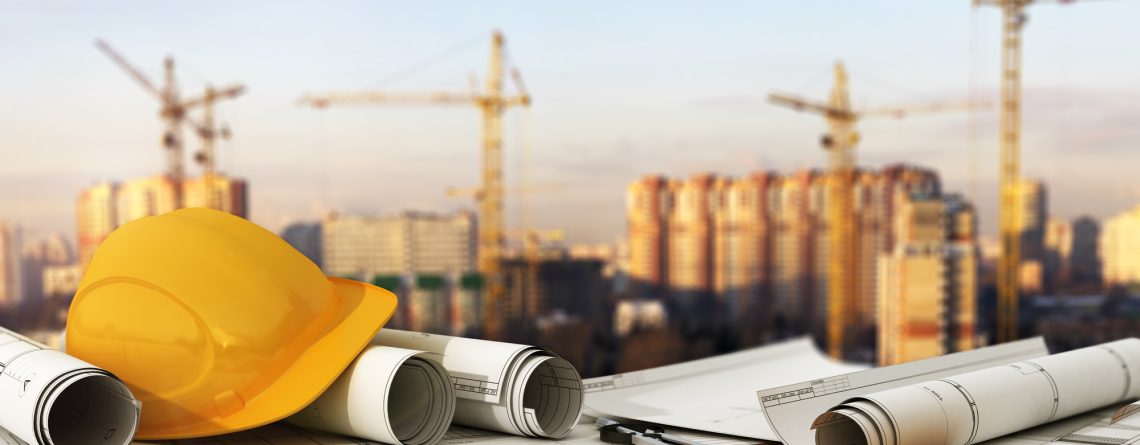How COVID-19 has affected the construction industry
With new safety guidelines due to COVID-19, the construction industry has certainly changed. For example, workers must wear masks over noses and masks to prevent the spread of the virus, but many of the guidelines also pertain to cleanliness and disinfecting job sites.
One study found that global construction growth in 2020 has been reduced from 3.1 percent to 0.5 percent due to COVID-19. How will your construction business deal with the impact of the pandemic?
The effects of COVID-19 have been felt across the world. There are new challenges to the construction and engineering industry that have delayed new building and important public works projects. In addition, the length of the crisis is still undetermined, leading to more uncertainty and severe implications for the construction workforce.
What Challenges Face the Construction Industry with COVID-19
With a global crisis, it’s hard to focus on just one or two building projects that have been stalled. The scale is much greater, limiting the workload for thousands of construction projects around the world. While many industries have been affected, engineering and construction businesses must face challenges head-on to protect their people and operations.
Few New Investments
Economic analysts have signaled a stall in new building projects as businesses and investors look to recover and avoid risk during the pandemic. Many commercial and industrial sectors have currently halted all construction projects.
Canceled Residential Projects
The financial impact of COVID-19 has been felt by every household. The residential sector has seen a significant decline in new renovation and building projects as well. While government has offered some support, many families are at high risk for homelessness and are not currently thinking about remodeling or new construction projects.
New Infrastructure Projects
There has been a slight increase in government and public works projects to help the construction industry. Analysts have pointed out the need for new road and bridge construction. However, these projects are strained by low financing and have their own challenges.
Value Chain Under Pressure
There are other issues for construction businesses besides the halt of previous projects and a lack of new ones. The pandemic is putting pressure on all aspects of engineering and construction project management.
For example, health and safety has become the biggest priority for many companies. When workers can’t adequately social distance themselves or masks are forgotten, the risk for spreading the virus as well as other liabilities come into play.
However, contract management, workforce management, contractor management, and supply chain and logistics have also been affected. With legal and HR departments in play, it’s difficult for construction companies to get around the financial and health implications for their workers, particularly on difficult jobsites.
Ideas to Resolve Current COVID-19 Challenges in Construction
There are a few proposals on how to deal with these new challenges, particularly when it comes to reducing health risks and financial losses.
- Revise Operating Models
It’s time to manage your imperative cash reserves and prepare for the future. You should look at how you are currently operating and cut back on any functional structures, while also implementing any automation where possible.
- Rethink Operations for Safety
It’s important to enable remote work wherever possible. HR and IT departments should prepare for more remote collaboration in a liquid architecture, creating virtual work areas with modern digital applications like Zoom and Slack.
In addition, construction companies must always secure workers on every construction site. Whether it’s providing masks or ensuring social distancing, construction companies have new safety measures to consider, in addition to the health and safety precautions that were already in place.
- Manage Material Supply Chain Impacts
Many businesses have felt the impact of COVID-19 due to international shipments being reduced, likely because of decreased operations from China. A reduction in imports have created serious problems for certain construction industries that rely on materials like steel, copper, aluminum, and stone from China.
Currently, the lead time on these materials is estimated at 3 weeks, though in some cases longer. Many Chinese manufacturers are just getting back online and have a backlog of orders, dating back to the early months of 2020. As more suppliers amp up operations, construction businesses are hopeful that their supply chain management will get back to normal.
However, it’s currently led to rapid purchasing, which is also driving up prices of materials in high-demand. To offset this, construction businesses need to manage additional costs and pivot away from projects that would be too costly because of high-priced materials.
Reinvent the Construction Business Model
If your business is struggling, it may be time to shift away towards project management, contract management, automation, and digital models. With search engine optimization (SEO), construction businesses may create new opportunities through coronavirus marketing, offering integrated project management platforms or specialized contract teams to help on larger contracts shared with other construction partners.
Marketing during COVID is especially difficult for the engineering and construction industry. While some businesses have taken advantage of SEO, coronavirus marketing strategies for construction companies mainly focus on business development, new contracts, and budget-cutting vendor contracts for low-cost materials. By partnering with other struggling companies, many businesses may be able to survive the pandemic in the short term by supporting each other and sharing resources.
Need Marketing During COVID?
With search engine optimization, PPC, and other digital marketing strategies, your business can earn traffic and revenue every day. Let us show you how it works.

